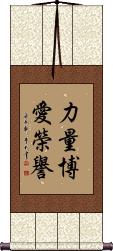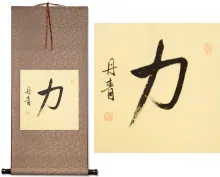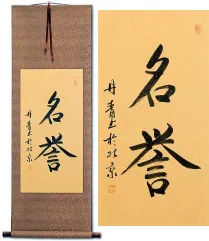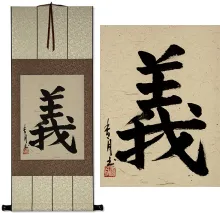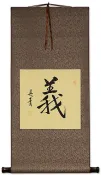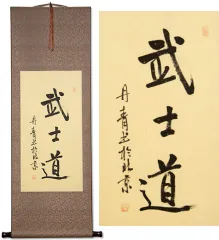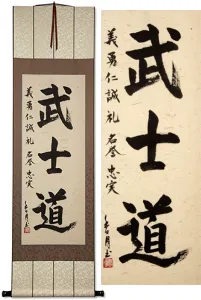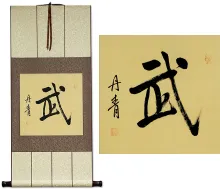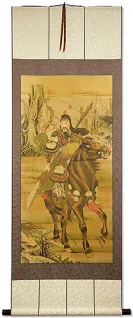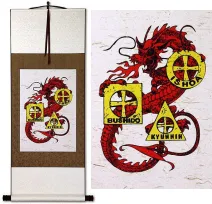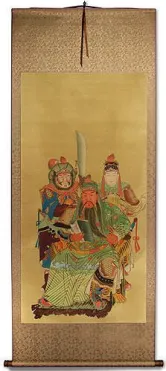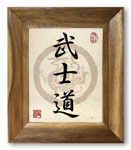Many custom options...
And formats...

Strength and Honor in Chinese / Japanese...
Buy a Strength and Honor calligraphy wall scroll here!
Personalize your custom “Strength and Honor” project by clicking the button next to your favorite “Strength and Honor” title below...
Strength and Honor
力と名譽 is “strength and honor” in Japanese Kanji (with one Hiragana).
The first Kanji is understood as strength, power, or force.
The second character is a connecting particle-like, “and” or “with.”
The last two Kanji mean honor/honour, credit, or prestige. This last word is also used in the Bushido code to mean honor.
Strength and Honor
力量與榮譽 is “strength and honor” in Chinese.
The first two characters are usually understood as (physical) strength but can also mean power or force.
The middle character is a connecting particle similar to “and.”
The last two characters are a way to say honor but can also be understood as honorable reputation, honorary, or glory.
Strength Love Honor
力量 博愛 榮譽 is the verbose way to write the word list, “strength love honor.”
It should be noted that word lists like this are not as natural sounding in Chinese as word lists can be in English. it’s more common to have a full phrase (with subject, verb, and object) or single words on calligraphy wall scrolls in Asia.
This in-stock artwork might be what you are looking for, and ships right away...
Gallery Price: $65.00
Your Price: $39.77
Gallery Price: $79.00
Your Price: $43.77
Gallery Price: $200.00
Your Price: $109.88
Gallery Price: $65.00
Your Price: $39.88
Gallery Price: $87.00
Your Price: $47.88
Gallery Price: $60.00
Your Price: $36.88
Gallery Price: $200.00
Your Price: $118.88
Gallery Price: $200.00
Your Price: $98.88
Gallery Price: $31.00
Your Price: $16.88
Gallery Price: $90.00
Your Price: $49.88
Gallery Price: $200.00
Your Price: $79.88
Gallery Price: $72.00
Your Price: $39.88
The following table may be helpful for those studying Chinese or Japanese...
| Title | Characters | Romaji (Romanized Japanese) | Various forms of Romanized Chinese | |
| Strength and Honor | 力と名譽 力と名誉 | chikara to mei yo chikaratomeiyo | ||
| Strength and Honor | 力量與榮譽 力量与荣誉 | lì liàng yǔ róng yù li4 liang4 yu3 rong2 yu4 li liang yu rong yu liliangyurongyu | li liang yü jung yü liliangyüjungyü |
|
| Strength Love Honor | 力量博愛榮譽 力量博爱荣誉 | lì liàng bó ài róng yù li4 liang4 bo2 ai4 rong2 yu4 li liang bo ai rong yu liliangboairongyu | li liang po ai jung yü liliangpoaijungyü |
|
| In some entries above you will see that characters have different versions above and below a line. In these cases, the characters above the line are Traditional Chinese, while the ones below are Simplified Chinese. | ||||
Successful Chinese Character and Japanese Kanji calligraphy searches within the last few hours...


